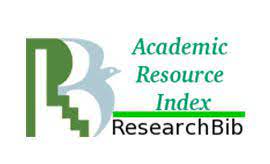METHODOLOGICAL FEATURES OF PROFESSIONALLY ORIENTED EDUCATION OF PHYSICAL ENGINEERING DISCIPLINES BASED ON STEM TECHNOLOGIES: ASPECT OF ONTOLOGICAL APPROACH
DOI:
https://doi.org/10.51707/2618-0529-2021-20-06Keywords:
physics, features of methods of teaching physics, STEM education, ontological approach, pedagogical experiment, professionally-oriented and engineering disciplines.Abstract
The article considers the urgency of the problem of interrelation of teaching physics and professionally-oriented disciplines based on STEM-technologies in the conditions of ontological approach in the process of training students in engineering and technical education according to the educational-professional program of speciality 272 “Air Transport”. Developed and proposed methods of teaching physics based on STEM-technologies, taking into account the definition of ontology aimed at forming STEM skills in subjects, due to the statement before educational institutions significantly improve the quality of students’ knowledge, the role of learning in shaping student’s thinking and cognitive abilities development of STEM education. It is determined that one of the innovative directions of modern education is the introduction of STEM education, which involves the integration of sciences aimed at the development of STEM technologies, innovative thinking and meeting the need for well-trained engineering and technical specialists. The methodical features of professionally-oriented teaching of physical engineering disciplines based on STEM technologies taking into account the ontological approach are substantiated. In the process of conducting a pedagogical experiment, theoretical and empirical research methods were used. In particular, the analysis of philosophical, psychological-pedagogical, educational-methodical literature, recommended textbooks and manuals on methods of teaching physics in the context of the development of STEM education was carried out. Observations, questionnaires, testing, surveys, interviews with scientists and students were conducted. These experimental results were comprehensively analyzed and processed, quantitative data using the methods of mathematical statistics. The results of a comparative experiment to identify the effectiveness of the proposed method of teaching physics in the context of STEM education showed that the level of physical knowledge, skills and abilities of students in control groups is lower than the corresponding level in experimental groups.
References
Tsyfrova adzhenda Ukrainy — 2020. Kontseptualni zasady (versiia 1.0). Proiekt [Digital Agenda of Ukraine — 2020. Conceptual principles (version 1.0). Project]. (2016). Retrieved from https://ucci.org.ua/uploads/files/58e78ee3c3922.pdf?__cf_chl_jschl_tk__=f985236c951055526026bf57f3e04ca6356f0875-1606720633-0-Ae1T5Gtsz-IeDZmGJ5jbGjtYq_zpwamhz1sLoLzstzY_01JQsNp513VNgjApXl8r7b00oVaeZHnERbWbhRWArr0QywpG193NYc0zT8-67hNQLy-vp5GtkyvpzC_7B-nsCocpE6Mc5ldWZ_a37iI8TSKOxfI3cDaYlqdFdao7PALNvtiDSYUSK2Xhf63X_i9m0ronsUWwa5vZPnS8jVmCEx69-OK5gBYu0PPJ2Adv73naeoj0DN0vdCvwMkNkbjpwddwiOUyJTUQEwvvpXkFUX8iOhIJvM_10QJGV6duC3f4IY2SPndZ9_IiZ=PReenOvfyHIFW4vNhz1Jp7CLpUY0sdaJpgYsHzgcHv2Skob8Fx4s [in Ukrainian].
Кontseptsiia rozvytku pryrodnycho-matematychnoi osvity (STEM-osvity) : skhvaleno Rozporiadzhenniam Kabinetu Ministriv Ukrainy від 5 serp. 2020 roku № 960-р. [The concept of development of natural and mathematical education (STEM-education) from August 5 2020, № 960-р.]. Retrieved from https://zakon.rada.gov.ua/laws/show/960-2020-р#Text [in Ukrainian].
Prykhodniuk, V. V., & Stryzhak, O. Ye. (2017). Ontolohichna HIS yak zasib vporiadkuvannia heoprostorovoi informatsii [Ontological GIS as a means of organizing geospatial information]. Nauka i tekhnika Povitrianykh Syl Zbroinykh Syl Ukrainy — Science and technology of the Air Force of the Armed Forces of Ukraine, 2, 167–174 [in Ukrainian].
Globa, L., Kovalskyi, M., & Stryzhak, O. (2015). Increasing web services discovery relevancy in the multi-ontological environment. Soft Computing in Computer and Information Science, 335–344.
Umerah, I. U., Kaniuka, T., Eley, P., Hudson, T., & Chitiga, M. (2021). Student Participation in a STEM Preparation Program and Decision to Major and Graduate in a STEM Field at an HBCU. The International Journal of Education and Social Science, 8, 4. Retrieved from https://www.researchgate.net/profile/Ted-Kaniuka/publication/354073901_Student_Participation_in_a_STEM_Preparation_Program_and_Decision_to_Major_and_Graduate_in_a_STEM_Field_at_an_HBCU/links/6123af871e95fe241aedeb8d/Student-Participation-in-a-STEM-Preparation-Program-and-Decision-to-Major-and-Graduate-in-a-STEM-Field-at-an-HBCU.pdf
Soldner, M., Rowan-Kenyon, H., Inkelas, K. K., Garvey, J., & Robbins, C. (2012). Supporting students’ intentions to persist in STEM disciplines: The role of living-learning programs among other socialcognitive factors. The Journal of Higher Education, 83 (3), 311– 336. DOI: https://doi.org/10.1353/jhe.2012.0017.
Tsai, F. H., Hsiao, H. S., Yu, K. C. & Lin, K. Yi. (2021). Development and effectiveness evaluation of a STEM-based game-design project for preservice primary teacher education. Int J Technol Des Educ. DOI: https://doi.org/10.1007/s10798-021-09702-5
Burmistorov, A. N., Borota, V. G., Koval’ov, Yu. G., Kuz’menko, O. S., & Fomenko, V. V. (2013). Fizika. Posobiye dlya vypolneniya laboratornykh rabot [Physics. A guide for laboratory work]. Kirovograd : KLA NAU [in Russian].
Borota, V. G., Kuz’menko, O. S., & Ostapchuk, S. A. (2012). Mekhanika i molekulyarnaya fizika. Metodicheskie rekomendatsii k vypolneniyu laboratornykh rabot po fizike na baze komplekta “L-mikro” dlya kursantov akademii vsekh spetsial’nostey [Mechanics and molecular physics. Methodical recommendations for laboratory work in physics on the basis of the “L-micro” set for cadets of the academy of all specialties]. Kirovograd : KLA NAU [in Russian].
Borota, V. H., & Kuzmenko, O. S. (2014). Fizyka. Metodychni vkazivky po vykonanniu rozrakhunkovo-hrafichnoi roboty z fizyky [Physics. Methodical instructions for performing computational and graphic work in physics]. Kirovohrad : KLA NAU [in Ukrainian].
Newton’s Laws Experiment. Retrieved from https://www.pasco.com/products/complete-experiments/mechanics/ex-5503
Centrepital Force Experiment. Retrieved from https://www.pasco.com/products/complete-experiments/mechanics/ex-5506
Downloads
Published
How to Cite
Issue
Section
License
Copyright (c) 2022 Scientific notes of Junior Academy of Sciences of Ukraine

This work is licensed under a Creative Commons Attribution 4.0 International License.













